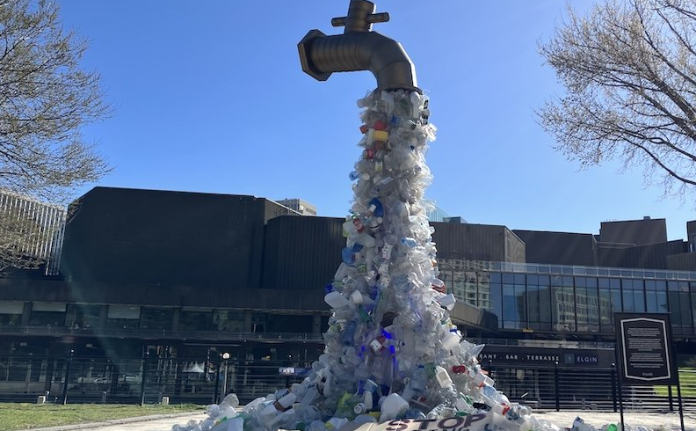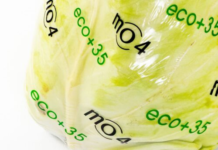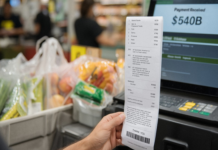
Today, 5 June, is World Environment Day. This year’s theme is #BeatPlasticPollution. In a little over two months from now, civil society groups, anti-pollution campaigners, and representatives of governments and oil-producing nations are meeting in Geneva to negotiate a legally binding instrument on plastic pollution. This meeting follows a stalemate during what was supposed to be the final; round of talks in December 2024 in Busan, South Korea.
As the voices grow louder against growing plastic pollution and the environmental challenges caused by uncontrolled plastic and packaging waste, the road to sustainability isn’t going to be that easy. In Busan, civil society clashed with polymer-makers over the demand to cut virgin polymer production. Oil-producing nations say plastic is a waste management issue and call for downstream measures. The stalemate forced the organizers to call for a second part of the fifth session of the Intergovernmental Negotiating Committee (INC-5.2) from 5 to 14 August in Geneva.
It would be unfair to say nothing to has been done on the sustainability front in plastics and packaging. Packaging majors and film makers are trying to find sustainable alternatives in the form of bio-polymers, compostable or bio-degradable alternatives.
Europe has rolled out the Packaging and Packaging Waste Regulation 2025/40 (PPWR), which aims to – prevent and reduce packaging waste, including more reuse and refill systems; make all packaging on the EU market recyclable in an economically viable way by 2030; safely increase the use of recycled plastics in packaging; and, decrease the use of virgin materials in packaging and put the sector on track to climate neutrality by 2050.
India, too, has its EPR regime, as part of which the government has made it mandatory to use 30% recycled plastic for category 1 packaging, defined as rigid plastics, which includes PET bottles, primarily used by beverage manufacturers, from 1 April 2025. Category II, which provides for flexible mono-layered plastics, has to use 10% recycled plastic, while category III, multi-layered plastics, has a 5% target for FY 2025-26. The targets keep increasing in each subsequent year.
However, the scaling back of sustainability goals by FMCG and F&B giants – or stiff resistance to comply with such rules on one pretext or the other – tend to put a spanner in the works. In the past year, global giants such as Unilever, Pepsico, Cola-Cola, Mondelez, Walmart, Colgate-Palmolive, and others either missed or reduced sustainability targets. And these are companies that generate much of the packaging waste globally. The reasons behind the scale-back are multiple – focus on profits, over-ambitious targets, lack of infrastructure, regulatory issues, access to recyclates, and consumer behavior.
Indian government unlikely to budge from food safety and recycling targets
In India, even as the Food Safety and Standards Authority of India (FSSAI) has notified guidelines for the use of recycled polyethylene terephthalate (rPET) as food contact material in food and beverage packaging, FMCG and F&B companies have shown reluctance to comply with the norms citing recycling infrastructure limitations, material shortage, and potential cost increase, which they say could be passed on to consumers.
While the government is unlikely to budge, the informal and unrecognized recycling sector is taking advantage of the situation and, quietly and stealthily upping its infrastructure that defies all norms and regulations.
Much of the unbranded plastic products out in the open market – used by small eateries and take-away joints – come from the informal recyclers, who pay no heed to safety and hygiene norms. Many studies and spot visits by non-profits have revealed toxic chemicals in recycled products. The irony is that most of these manufacturers operate right under the nose of the authorities.
The single-use ban in India has also failed miserably due to a lack of enforcement. Apart from stray raids on kirana shops or roadside vendors, no visible action is seen to curb the use of banned plastic items, which are still produced with impunity.
As such, it remains to be seen how FSSAI can keep tab on the compliance of its norms on guidelines for rPET in food-grade packaging, as both branded quality products might end up with the same distributors and sales agents that also sell unbranded, low-quality stuff. The open availability of unbranded items might also encourage food operators to opt for these owing to their lower cost. The key to compliance is strict education and enforcement. Educating consumers to reject low-quality stuff. And strict enforcement to compel unrecognized manufacturers to pack up and shut shop.
The amount of plastic used in packaging is tremendous. India’s packaging consumption is a fraction compared to the West; however, in absolute terms, the number wouldn’t be too small to ignore. Sustainable alternatives and recycling have their limitations. As such, reduce and reuse could help to some extent. However, given the way the packaging industry is growing, reduction, too, would be no cakewalk.
Fighting plastic pollution and saving the environment goes beyond planting a few trees, organizing a few official functions and sharing messages on social media. Strong political will, public awareness and strict implementation of existing policies would be the first step forward. Till then, all eyes on Geneva in August for some breakthrough.










